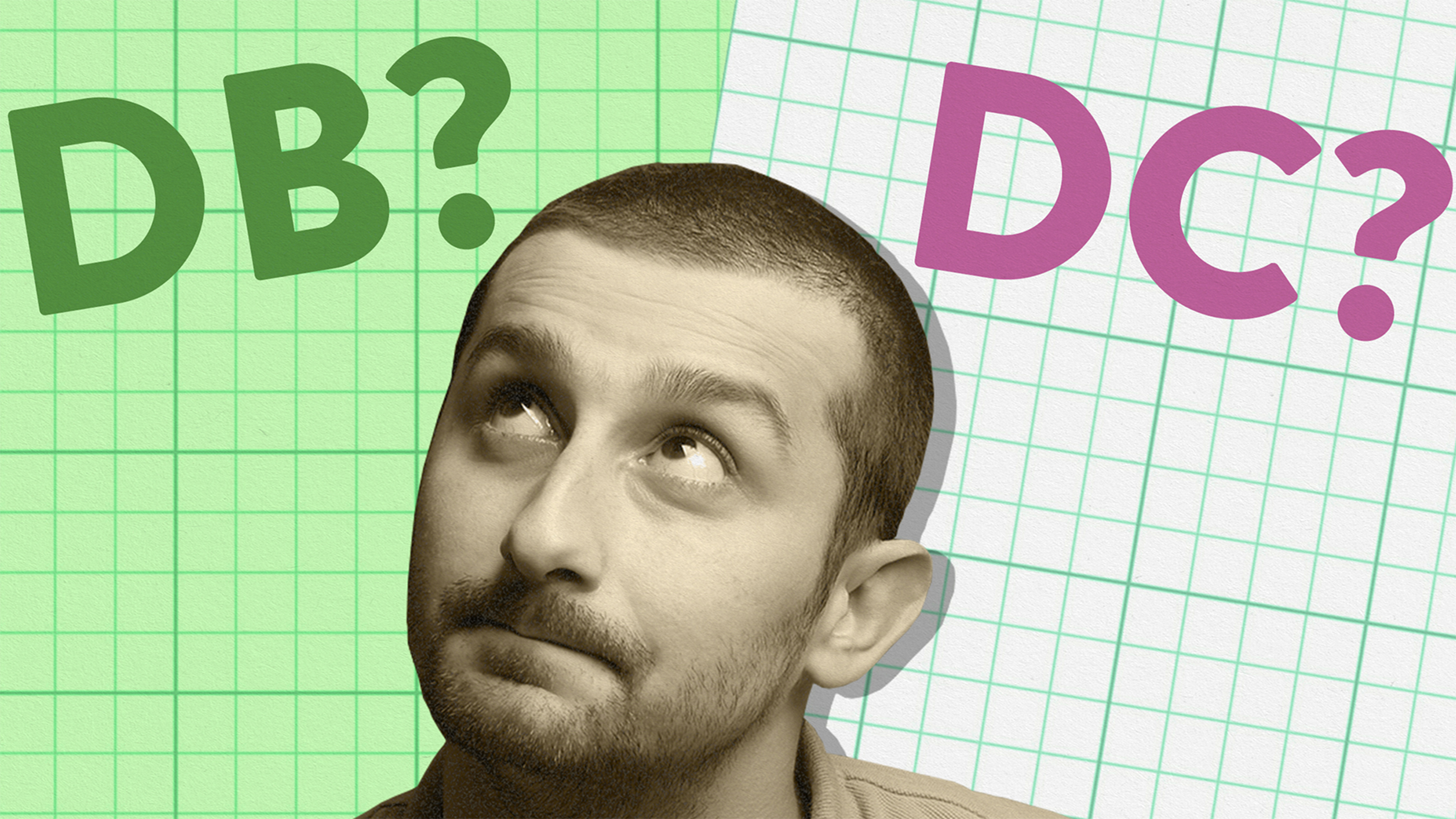What do DB and DC stand for?
A 5 minute read

It’s not Latin, if that’s what you were thinking. Defined Contribution pensions, or DC, are where you contribute money to your pension and your money is invested, allowing it to grow over time. Your employer contributes too, beefing your money up - sometimes even matching what you add.
Your pension money is invested into things like shares in companies (also known as stocks or equities) and government bonds, cash and commercial property. Although the aim is to grow your money, nothing is guaranteed when you invest, so there are likely to be highs and lows along the way.
With a DC pension, the income that you’ll receive in retirement depends on how much has been paid into your pension and how your investments have performed over time.
Defined Benefit pensions - or DB pensions - are often called ‘final salary’ or ‘career average’. Your employer pays you a guaranteed income for life in retirement, and its value is determined by how long you’ve been a member of the employer’s scheme and the salary you’ve earned when you leave or retire. You might also contribute your own money too and any contributions you make will qualify for tax relief, just like a DC pension. It’s the ultimate in security, as your employer is responsible for ensuring there’s enough money at the time you retire to pay your pension income. Your income is guaranteed, and it also rises with inflation.
Sadly, DB schemes are expensive for employers, so they’re not offered as much anymore. Only a few large public sector businesses (health, education, etc) tend to offer DB pensions to new employees.
Most people in the UK now have DC workplace pensions.
What kind do you have?
DO NOT EDIT THIS BOX UNLESS YOU'RE NOEL

